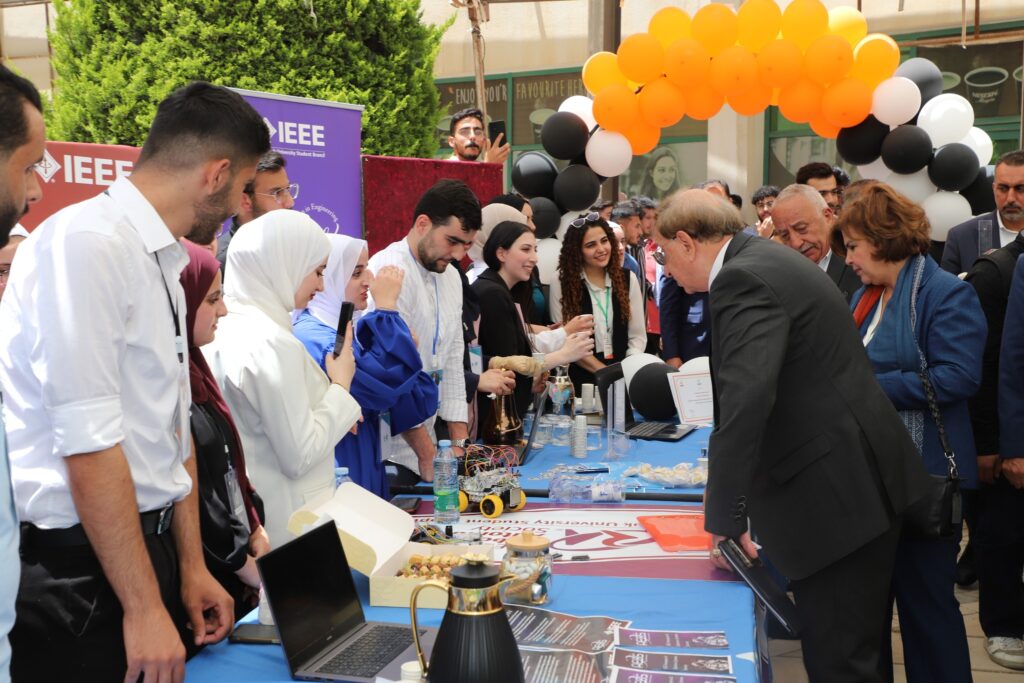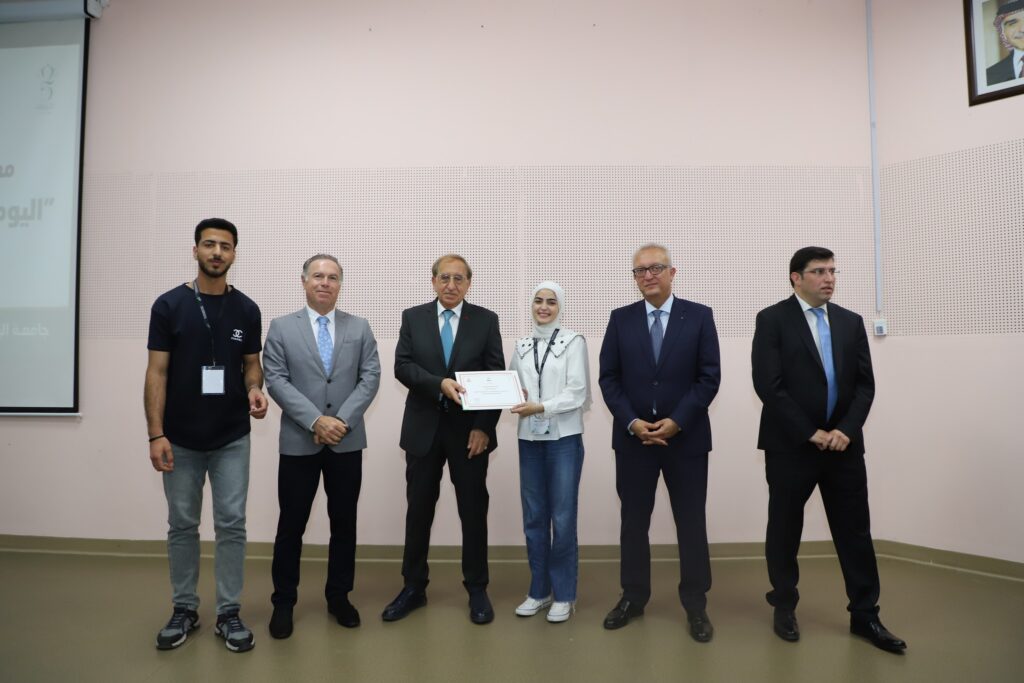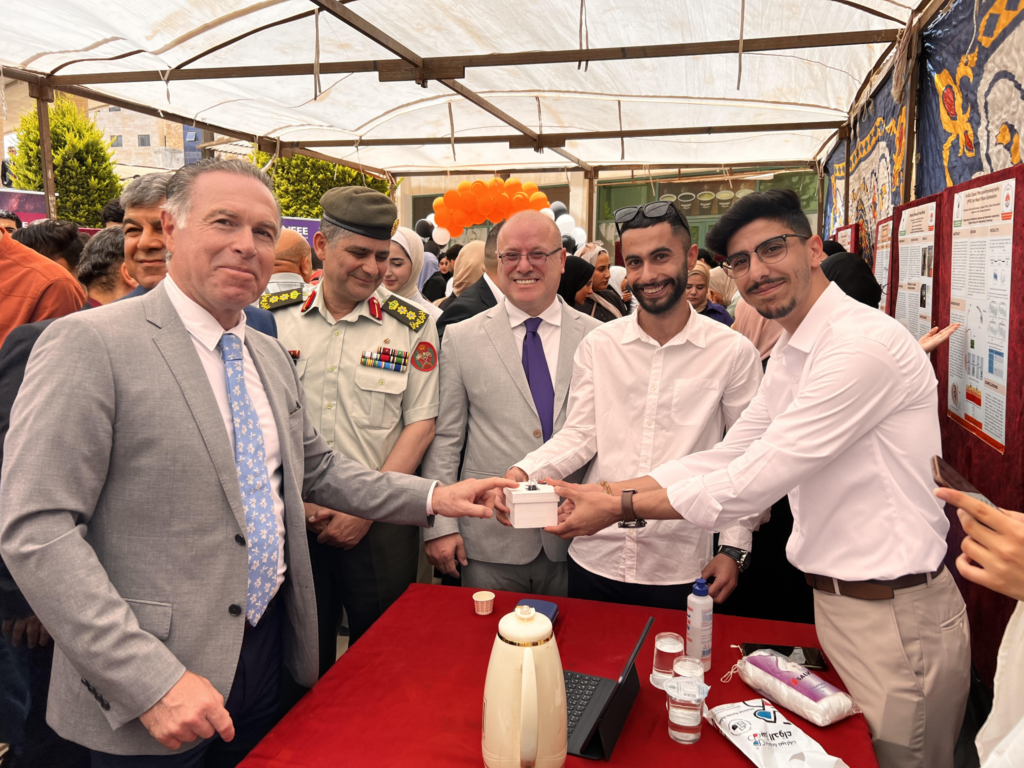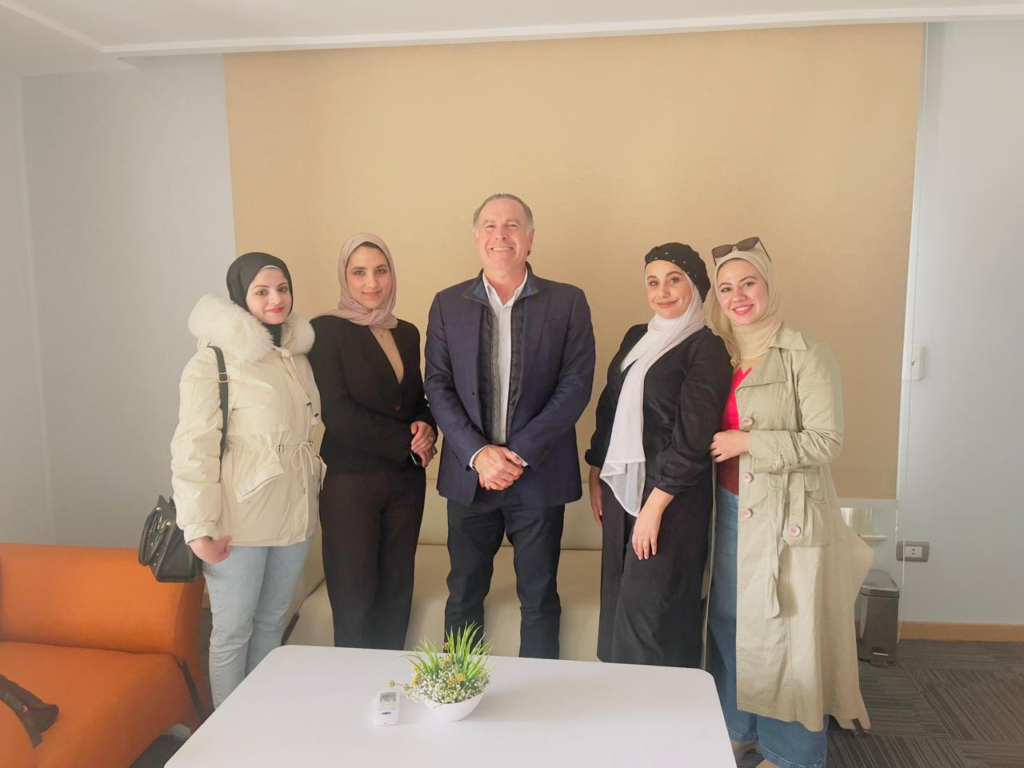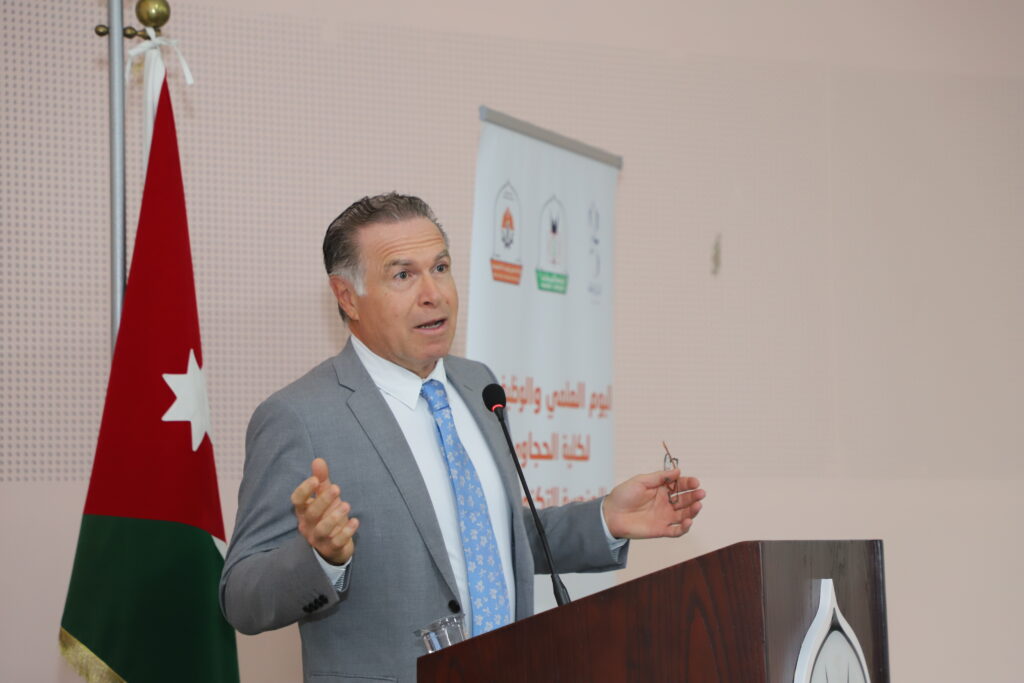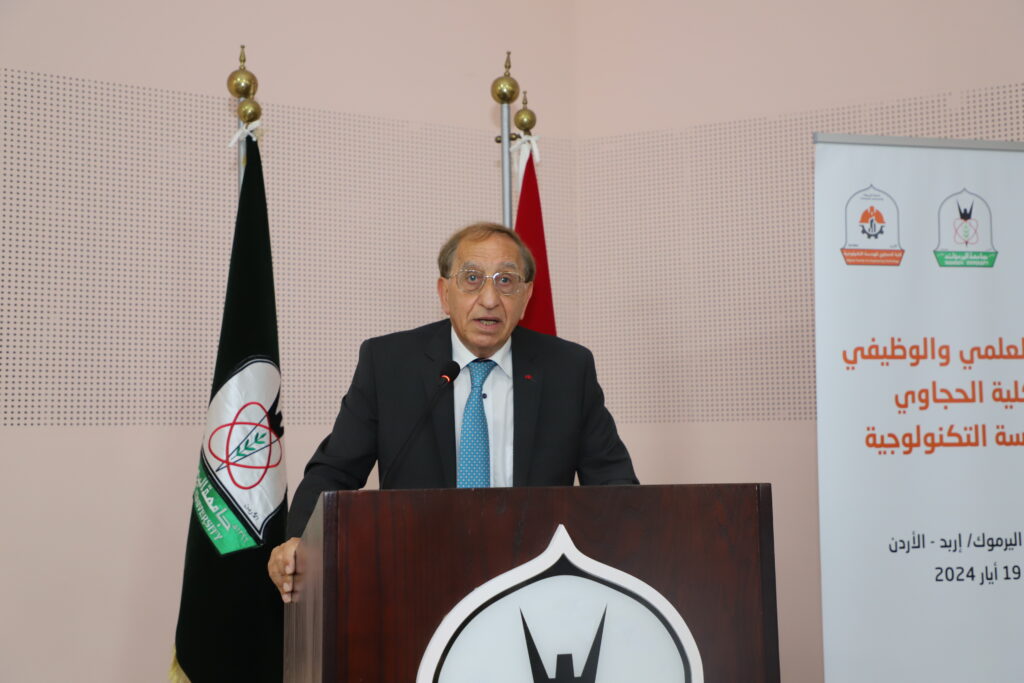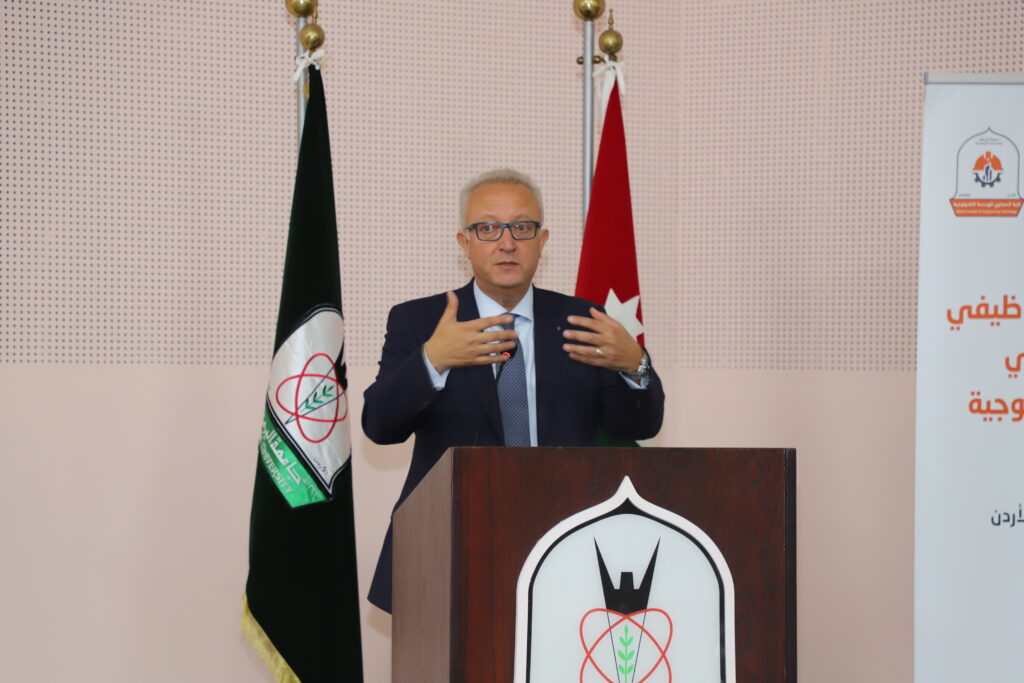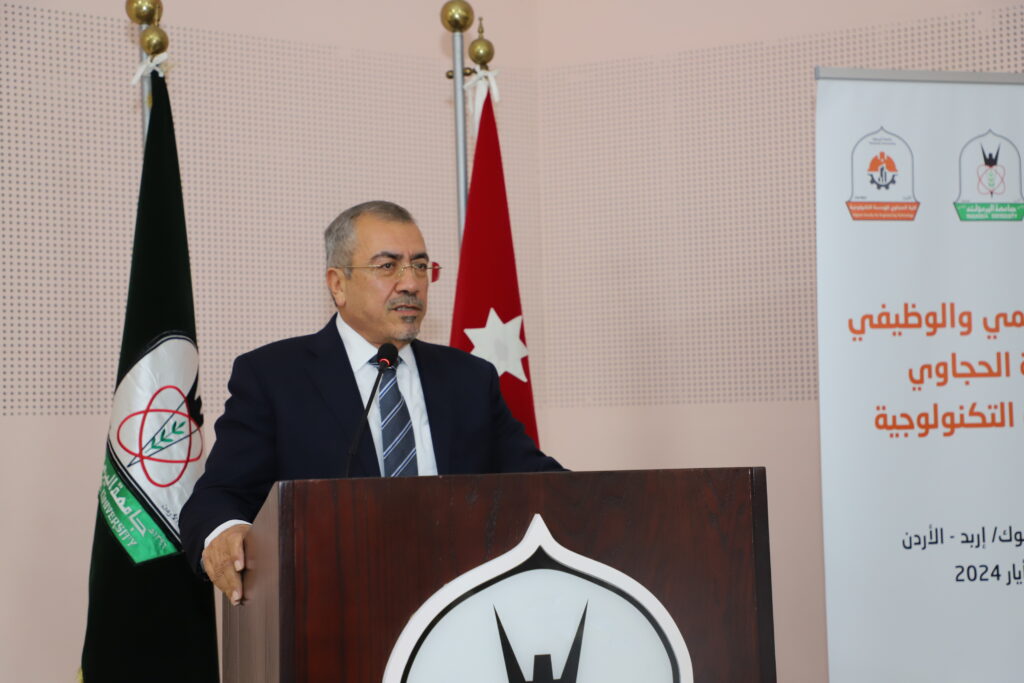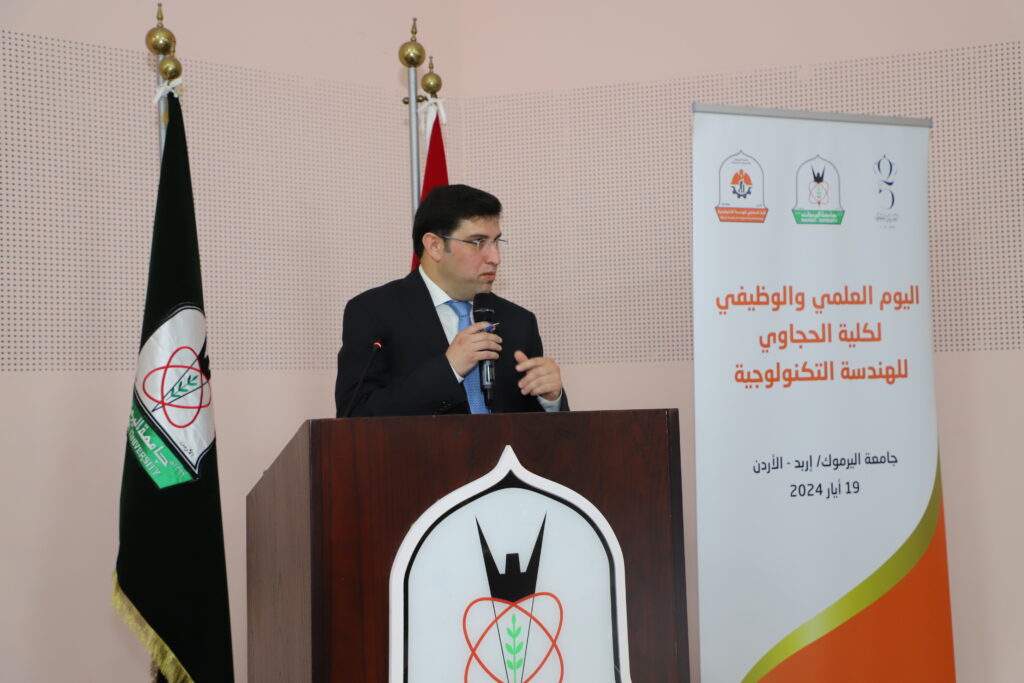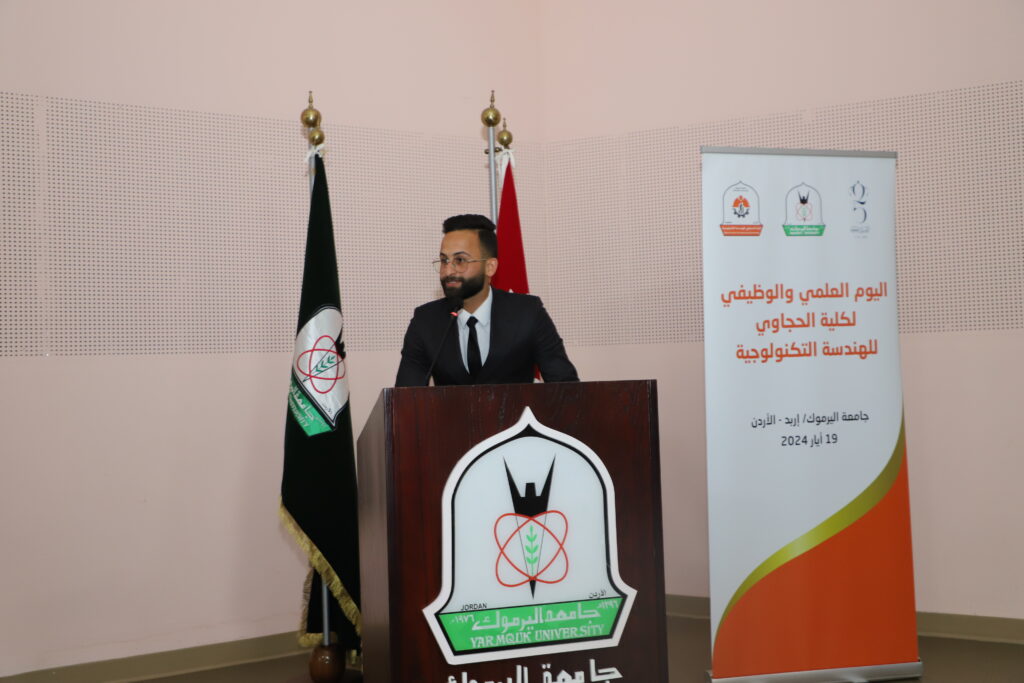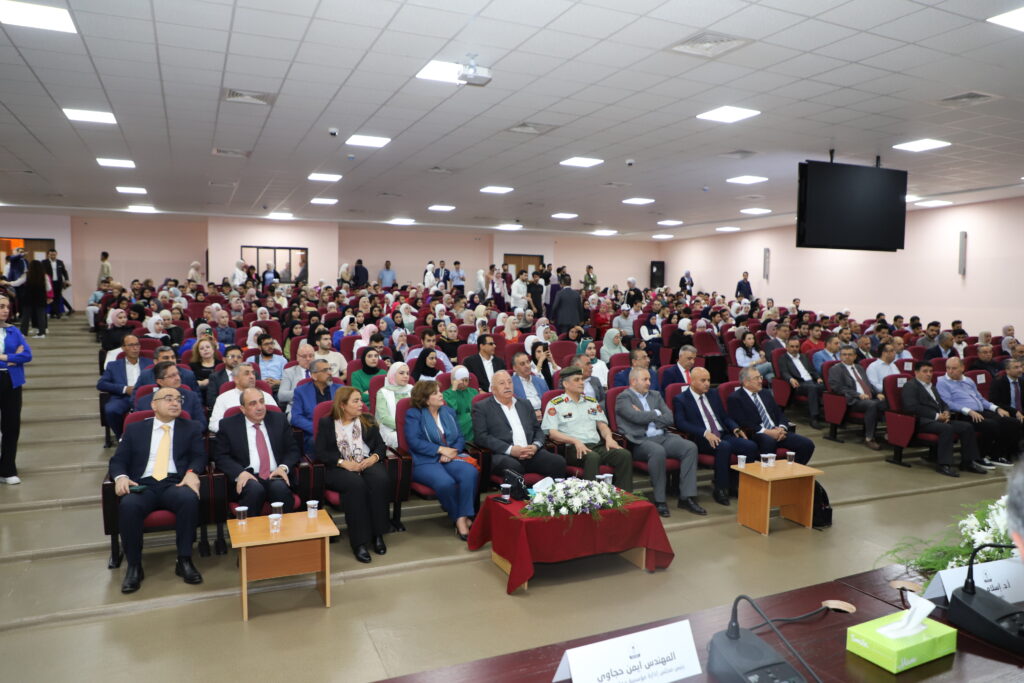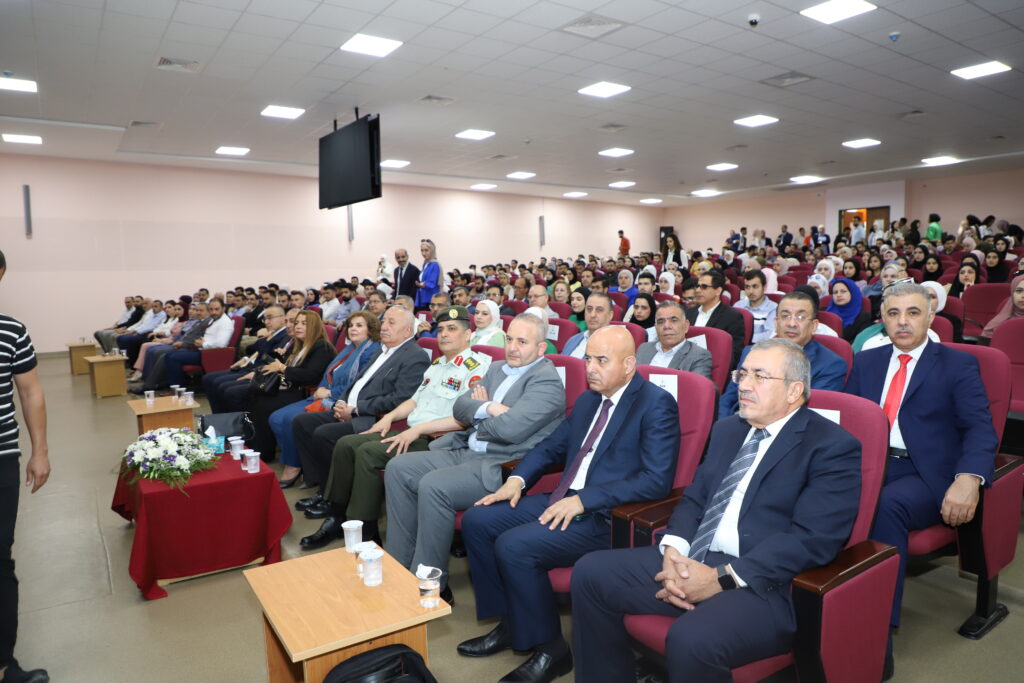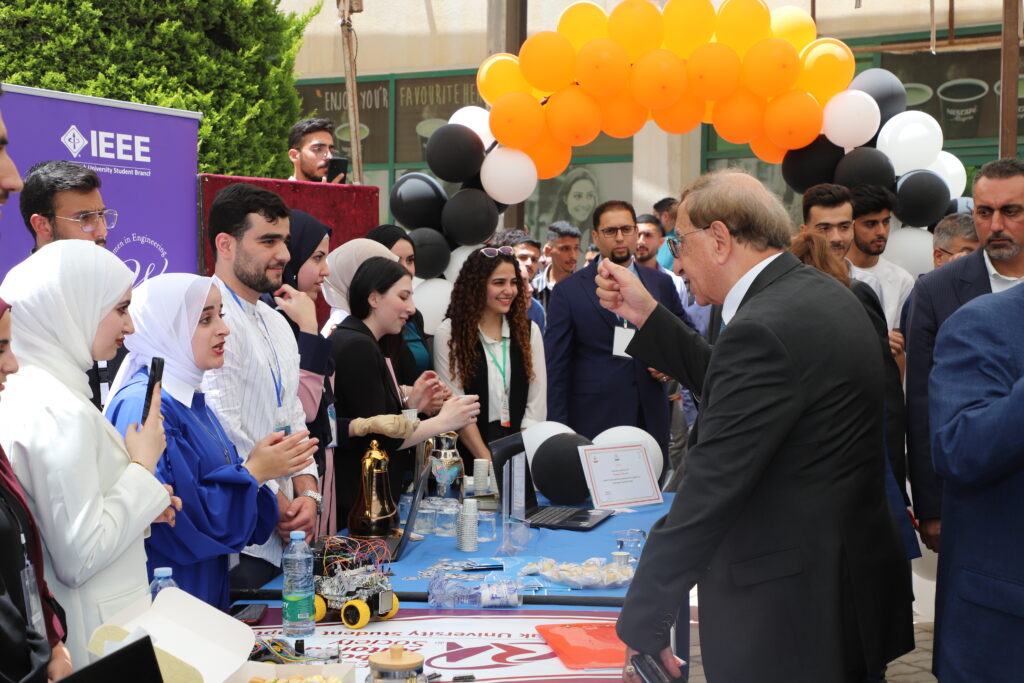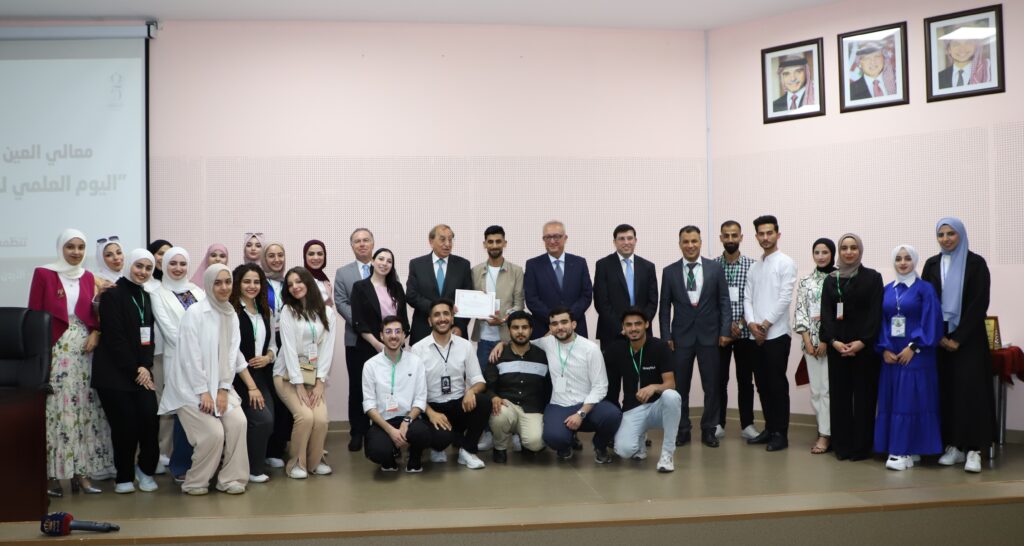Senator Dr. Labib Al-Khadhra, along with Yarmouk University President Dr. Islam Massad, sponsored the scientific day events organized by the university to mark the 40th anniversary of the founding of Al-Hijjawi Faculty of Engineering Technology.
Al-Khadhra emphasized the importance for academic institutions to keep pace with the rapid scientific and technological advancements across all fields by developing dynamic and flexible curricula, academic programs, and educational models. These should focus on the skills required to meet the demands of the Fourth Industrial Revolution in the labor market, thereby enabling universities to produce competent graduates capable of competing regionally and globally, and thus contributing to both individual and national economic growth.
He added that information technology is the main driving force for the development of education in general and engineering education in particular. He stressed the need for fundamental reforms supported by technology and pedagogy, including integrating the information revolution into all aspects of education. This would lead to substantial changes in educational goals, enhance the teaching and learning process, and improve educational governance and policies.
Al-Khadhra pointed out the importance of leveraging artificial intelligence capabilities in the educational process by incorporating technical means and focusing on both the student and the teacher. He highlighted that these tools can make the teaching process more creative and effective. He stressed the need to manage the change process gradually and carefully, and to integrate generative AI into the curriculum purposefully and responsibly, emphasizing that generative AI should assist, not replace, in acquiring knowledge.
He praised the distinguished level of Al-Hijjawi Faculty, which has seen a significant leap in updating its academic programs over the past three years to keep pace with rapid advancements in science and technology.
On his part, Massad affirmed that Al-Hijjawi Faculty is a living example of genuine partnership between the public and private sectors. He commended the efforts of the late Hisham Hijjawi, who believed in Jordan, its leadership, and his duty towards his country. He emphasized that this partnership between the sectors is a priority for the Jordanian state under the leadership of His Majesty the King, and that the government strives to achieve this through economic modernization visions.
He added that “Yarmouk University,” through its academic and administrative staff and students, has achieved much for Jordan in general and for the people of the north in particular. He noted that at “Yarmouk,” they build on the achievements of previous generations with a forward-looking vision of what these academic institutions should be. The university is undergoing an academic revolution regarding its study plans in alignment with the labor market, in addition to developing and enhancing its students’ skills in various fields and keeping pace with modern technological changes such as artificial intelligence. This ensures the graduation of competent individuals capable of competing in the local, regional, and international job markets.
Massad expressed Yarmouk’s pride that 65% of its students are female, who have demonstrated their academic excellence and competence. He praised the distinguished level and diligent efforts of Al-Hijjawi Faculty in keeping up with modern engineering developments, conducting rigorous scientific research, and publishing in global databases. The faculty is committed to preparing its students optimally, enabling them to achieve many advanced positions in various scientific forums.
Engineer Ayman Hisham Hijjawi, Chairman of the Board of Directors of the Hijjawi Scientific Foundation, praised the distinguished level of Al-Hijjawi Faculty of Engineering Technology. He emphasized that over 40 years, the faculty has demonstrated its excellence and ability to graduate competent individuals who have proven their merit and excellence in the engineering labor market locally, regionally, and internationally.
He pointed out that the “Foundation” always strives to support students in enhancing their ability to plan for the future and strengthen their professional competitiveness. He noted that four female engineers from Al-Hijjawi graduates secured a four-month training opportunity at the largest solar power plant in the Middle East, “Aswan.” Additionally, “30” students from the college will participate in a training course organized by the Foundation on future planning.
In the same context, Dr. Muwafaq Al-Atoom, Dean of Al-Hijjawi Faculty of Engineering Technology, emphasized the importance of academic institutions fostering a culture of creativity and innovation among their students by involving them in various experiences and sciences. This broadens their horizons and helps them find their place in this rapidly changing world.
He reviewed the programs and specializations recently introduced by the faculty, such as the Master’s in Engineering Management, the Master’s in Computer Engineering, the Bachelor’s in Civil Engineering, the Bachelor’s in Internet of Things, the Master’s in Systems and Biomedical Informatics Engineering, the Bachelor’s in Robotics Engineering, and the Master’s in Construction Engineering and Management.
Al-Atoom highlighted the measures taken by the faculty to keep up with rapid changes and increase flexibility in specializations, such as enhancing students’ language skills, introducing four courses in job qualification focusing on work skills, incorporating global industrial certifications into their study plans, and introducing a mandatory course for all bachelor’s specializations in the college on AI applications. These steps align with the rapid technological changes and include activating the idea of the college’s industrial advisory council and issuing a quarterly newsletter.
During the scientific day events, the keynote speaker, Dr. Mohammad Al-Jarrah, founder and director of Mars Robotics and an alumnus of the faculty, shared his success story and the founding of his company, which specializes in manufacturing unmanned aerial vehicles and employs 50 engineers. He pointed out that the company managed to create a drone capable of carrying 350 kg and flying for 24 hours.
Alumnus Engineer Mohammad Anizat also presented his success story and his achievement in founding the engineering team, Partner Engineers, which provides comprehensive engineering services including consulting, design, and supervision. Additionally, he established a specialized training team, Tools Life, focusing on life skills and career development training. He also launched the podcast program “Balance.”
At the end of the ceremony, Al-Khadhra presented commemorative shields to the speakers and participating companies, as well as appreciation certificates to the student clubs and teams that won local and international awards.
The scientific day included a short video featuring the opinions of faculty students, various lectures, and an exhibition of student projects and participating companies.
The opening of the scientific day events was attended by Senator Engineer Khaled Ramadan, Senator Dr. Abla Amawi, and Senator Dr. Mayson Al-Atoom.
